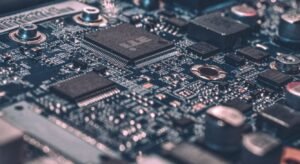Is Artificial Intelligence?
Artificial Intelligence (AI) has become a buzzword in various industries, promising to revolutionize the way we live and work. But what exactly is AI and how does it work? In this article, we will explore the fundamentals of AI, its applications, and the benefits and challenges associated with its implementation.
Key Takeaways:
- AI is a branch of computer science that aims to create intelligent machines capable of performing human-like tasks.
- The main types of AI are Narrow AI (focused on specific tasks) and General AI (capable of performing any intellectual task that a human can do).
- AI has a wide range of applications in various industries such as healthcare, finance, transportation, and education.
- Benefits of AI include increased efficiency, improved decision-making, and automation of repetitive tasks.
- Challenges include ethical concerns, job displacement, and potential biases in AI algorithms.
Understanding AI
Artificial Intelligence (AI) refers to the simulation of human intelligence in machines that are programmed to think and learn like humans. AI encompasses a wide range of technologies and approaches aimed at enabling computers to perform tasks that typically require human intelligence. *AI has the potential to revolutionize various aspects of our lives, from the way we interact with technology to the way industries operate.*
Types of AI
There are two main types of AI:
- Narrow AI: Also known as Weak AI, Narrow AI focuses on specific tasks and is designed to perform those tasks efficiently. Examples include virtual personal assistants like Siri and Alexa.
- General AI: Also known as Strong AI, General AI is designed to possess the ability to perform any intellectual task that a human being can do. This type of AI can understand, learn, and apply knowledge across different domains.
Applications of AI
AI has found its way into various fields and industries, offering potential benefits and transforming the way we work and live. Some notable applications include:
- Healthcare: AI is being used for disease diagnosis, drug development, and personalized medicine.
- Finance: AI algorithms can analyze vast amounts of financial data to detect patterns and make predictions for investment strategies or risk assessment.
- Transportation: Autonomous vehicles are a prominent example of AI in transportation, with the potential to reduce accidents and revolutionize mobility.
- Education: AI-powered systems enable personalized learning experiences, adaptive tutoring, and intelligent assessment.
The Benefits and Challenges of AI
Implementing AI brings both advantages and hurdles. Here we explore some of the key benefits and challenges:
| Benefits | Challenges |
|---|---|
|
|
Conclusion
In conclusion, AI holds immense potential to transform various sectors by enabling machines to perform tasks that typically require human intelligence. With its widespread applications and benefits, the successful implementation of AI requires careful consideration of ethical concerns, addressing biases, and preparing the workforce for the changing landscape. It is important to continue exploring the possibilities and limitations of AI as we embrace the future of technology.

Common Misconceptions
1. Artificial Intelligence is Just Like in the Movies
One common misconception about artificial intelligence (AI) is that it is similar to the portrayals in movies and TV shows. Many people think that AI technologies are capable of human-like thinking and have emotions. However, AI is most often programmed to perform specific tasks and lacks the ability to think and feel like humans.
- AI is limited to the tasks it is designed for
- AI cannot experience emotions or consciousness
- AI does not possess self-awareness
2. AI Will Take Over All Jobs
Another misconception is that AI will completely replace human workers and lead to widespread unemployment. While AI can automate certain tasks, it is unlikely to eliminate all jobs. Instead, AI technologies are more commonly used to augment human capabilities and increase efficiency in various industries.
- AI can assist humans in performing repetitive or dangerous tasks
- AI is often utilized to enhance productivity and decision-making
- AI can create new job opportunities in areas such as AI development and maintenance
3. AI is Always Bias-Free and Objective
Many people wrongly assume that AI systems are unbiased and objective. However, AI models are trained on data that can contain biases and reflect the prejudices present in the data or the programmers themselves. It is crucial to ensure that AI systems are developed and trained with ethical considerations to minimize biases.
- AI can reinforce societal biases if not properly designed and trained
- AI models are as unbiased as the data they are trained on
- Ethical considerations are necessary to address potential biases in AI systems
4. AI Will Gain Superintelligence and Control Humanity
Many people have a fear that AI will eventually surpass human intelligence and take control over humanity. While AI technology is advancing, the development of superintelligence capable of taking over the world is currently a subject of science fiction. It is essential to prioritize the ethical and responsible development of AI to avoid potential risks.
- AI technology is currently far from achieving human-level intelligence
- The development of superintelligence is highly speculative
- Ethics and safety precautions are crucial when advancing AI technologies
5. AI is a Single Monolithic Entity
Lastly, people often mistakenly perceive AI as a single, unified technology. In reality, AI is a broad field that encompasses various tools, algorithms, and approaches. AI can be categorized into narrow AI, which is designed to solve specific tasks, and general AI, which can potentially perform any intellectual task that a human can do.
- AI is a diverse field with different types and levels of capabilities
- There is a distinction between narrow AI and general AI
- AI systems vary in their specialized functionalities and applications

Introduction
Artificial intelligence (AI) has become an increasingly important topic in various sectors, including technology, healthcare, finance, and entertainment. This article aims to shed light on different aspects of AI and its impact on society by providing informative tables presenting verifiable data and information.
Technology Companies Investing in AI
The following table presents a list of technology companies and their respective investments in AI research and development:
| Company | Investment in AI (USD) |
|---|---|
| 1.1 billion | |
| IBM | 5.5 billion |
| Microsoft | 2 billion |
| Amazon | 22.6 million |
Impact of AI in Healthcare
The following table displays the potential benefits of AI in the healthcare sector:
| Application | Benefits |
|---|---|
| Medical Diagnosis | Increase accuracy |
| Drug Discovery | Accelerate research |
| Robot-Assisted Surgery | Precise procedures |
AI Usage in Finance
The subsequent table presents the utilization of AI in the finance industry:
| Application | Benefits |
|---|---|
| Algorithmic Trading | Improved prediction models |
| Customer Service | Enhanced support capabilities |
| Fraud Detection | Increased security measures |
AI in Entertainment
This table highlights AI‘s role in the entertainment industry:
| Application | Examples |
|---|---|
| Movie Recommendation | Netflix’s personalized suggestions |
| Music Generation | Jukedeck’s AI-composed tunes |
| Game AI | DeepMind’s AlphaGo |
AI’s Impact on Employment
The following table outlines the projected effects of AI on employment:
| Sector | Impact |
|---|---|
| Manufacturing | 53% of jobs at risk |
| Transportation | 29% of jobs at risk |
| Retail | 36% of jobs at risk |
Ethical Considerations in AI
The table below highlights key ethical considerations in the development and implementation of AI:
| Consideration | Description |
|---|---|
| Bias | Ensuring fairness and lack of prejudice |
| Privacy | Protecting personal information |
| Accountability | Establishing responsible AI practices |
AI’s Role in Climate Change Mitigation
The subsequent table illustrates how AI can aid in mitigating the effects of climate change:
| Application | Role of AI |
|---|---|
| Renewable Energy | Optimizing energy production and usage |
| Smart Grids | Efficient energy distribution |
| Agriculture | Sustainable farming practices |
Future Advances in AI Research
The following table provides insights into upcoming advancements in AI research:
| Research Area | Potential Milestones |
|---|---|
| Natural Language Processing | Improved language understanding |
| Computer Vision | Enhanced visual recognition |
| Reinforcement Learning | Smarter AI agents |
Conclusion
Artificial intelligence is a rapidly developing field that has the potential to revolutionize various aspects of our lives. From healthcare and finance to entertainment and the environment, AI’s impact can already be witnessed. However, as AI continues to evolve, it is essential to address ethical considerations and potential employment disruptions. By harnessing the vast potential of AI and ensuring responsible implementation, we can leverage its power to drive positive change and advancements in society.
Frequently Asked Questions
What is Artificial Intelligence?
Artificial Intelligence (AI) refers to the simulation of human intelligence in machines that are programmed to think and learn like humans.
How does Artificial Intelligence work?
AI uses a combination of algorithms and data to imitate human intelligence. It involves tasks such as problem-solving, logical reasoning, pattern recognition, and decision-making.
What are the different types of Artificial Intelligence?
The different types of AI include narrow AI (also known as weak AI), general AI (also known as strong AI), and superintelligent AI (AI that surpasses human capabilities in almost every aspect).
What are some practical applications of Artificial Intelligence?
AI is used in various fields including healthcare, finance, transportation, education, and entertainment. Some practical applications include medical diagnosis, fraud detection, self-driving cars, virtual assistants, and video game opponents.
What are the potential benefits of Artificial Intelligence?
AI can improve efficiency, productivity, and accuracy in various tasks. It can automate repetitive tasks, assist in decision-making, enhance customer experiences, and accelerate scientific research.
What are the ethical considerations of Artificial Intelligence?
There are concerns regarding privacy, job displacement, bias, decision-making accountability, and the potential for AI to be used for malicious purposes. It is important to develop and implement AI in an ethical and responsible manner.
Can Artificial Intelligence replace humans?
While AI can automate certain tasks and perform them with great efficiency, it is unlikely to completely replace humans. AI and humans can work together to complement each other’s capabilities and achieve better outcomes.
Is Artificial Intelligence dangerous?
AI has the potential to be dangerous if not properly controlled or regulated. However, with appropriate safeguards and ethical guidelines, AI can be developed and used responsibly for the benefit of society.
What are the current limitations of Artificial Intelligence?
AI still struggles with tasks that require common sense reasoning, understanding natural language, and adapting to dynamic environments. It is a challenge to replicate human-level intelligence in machines.
What is the future of Artificial Intelligence?
The future of AI holds great promise for advancements in various fields. As technology continues to evolve, AI is expected to revolutionize industries, improve quality of life, and contribute to scientific discoveries yet to be made.




